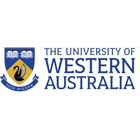Bachelor of Environmental Science and Master of Environmental Science
Bachelor of Environmental Science and Master of Environmental Science
This Combined Bachelor’s and Master’s (CBM) is a four-year accelerated program for those with an ATAR of 90 or above. Over the first three years you’ll complete your selected extended major in Environmental Science and Management or Environmental Science and Ecology, and some units from the Master of Environmental Science….
Categories
COURSE DESCRIPTION
This Combined Bachelor’s and Master’s (CBM) is a four-year accelerated program for those with an ATAR of 90 or above. Over the first three years you’ll complete your selected extended major in Environmental Science and Management or Environmental Science and Ecology, and some units from the Master of Environmental Science. You can then choose to exit after three years with an Advanced Bachelor’s Degree in Environmental Science, or continue with the Master of Environmental Science and be awarded a Bachelor of Environmental Science and a Master of Environmental Science at the end of the four years.
Gain advanced skills and knowledge in dealing with issues such as climate change, water resource management, sustainable natural resource use, and the rehabilitation of degraded or polluted environments to help secure a sustainable future.
Course structure
In your first three years, you will complete your selected extended major in Environmental Science and Management or Environmental Science and Ecology and a semester of postgraduate study. You will then complete your selected specialisation in the Master of Environmental Science.
Why study this course?
UWA is ranked 2nd in Australia and 38th in the world for Environmental Science and Engineering (ARWU 2023) and the UWA Centre for Environmental Economics and Policy is a recognised centre of excellence for the impact of its environmental policy analysis
You’ll learn to help society resolve conflicts, caused by the increasing demands of growing populations on the environment through an understanding of environmental science and social science
You’ll become a leader in environmental science and policy analysis with strong job opportunities and weekly wages being higher than the average (joboutlook.gov.au)
You’ll learn to
develop skills and knowledge to assess environmental systems, using field, laboratory, modelling and statistical methodologies
integrate science, economics and social science to guide decision making with respect to human intervention in the environment
analyse environmental policies from an economic and social science perspective
Career Pathways
Our specialisations have been designed in consultation with the industry to ensure graduates are highly competent and sought-after in their chosen field. Graduates will find employment in a range of areas including:
Environmental consulting firms
Commonwealth and state agencies responsible for the environment, water, conservation, agriculture and food, and primary industries.
Private sector firms working in the resources sector and non-government organisations.
Roles can include:??
Environmental Consultant
Environmental Manager
Environmental Scientist
Geographer
Environmental Rehabilitation Graduates will be well-positioned for careers in industrial, mining, agricultural, and urban environmental management.??
Examples of career paths include:??
Contaminated sites management: assessing contamination, developing clean-up strategies
Environmental consultancy: environmental impact assessment, management plans for urban and industrial sites
Mine site rehabilitation: remediating soils and water, re-introducing key flora and fauna species, identifying appropriate end land use options and management strategies
Urban planning: assessing land degradation risk (e.g. acid sulfate soils, erosion), managing anthropogenic impacts on natural systems.
REQUIREMENTS
Entry requirements may vary from country to country. Students are required to complete an international academic qualification equivalent to Australian High School (or equivalent).
English language requirements:
IELTS (academic): Overall minimum score of 6.5, no band lower than 6.0
TOEFL Internet-based TOEFL (iBT): an overall score of 82 or above with a minimum score of 22 in writing, 18 in reading, 20 in speaking and 20 in listening
Pearsons Test of English (PTE) (academic): An overall score of 64 with a minimum score of 59 in the speaking and writing sections, and no less than 54 in the other sections
EDUCATIONAL INSTITUTION
The University of Western Australia (UWA) is a proud member of the Group of Eight and is the only university in Western Australia to be ranked in the world top 100 universities (QS World University Rankings 2023).UWA’s main campus is located in Perth, Western Australia and is home to more than 23,000 students. Perth is Australia’s fourth-largest city with over two million people from a variety of cultures worldwide, a strong economy and vibrant lifestyle. Perth is one of the country’s most affordable cities, the closest major Australian city to Asia, and in the same time zone as most of Asia.




